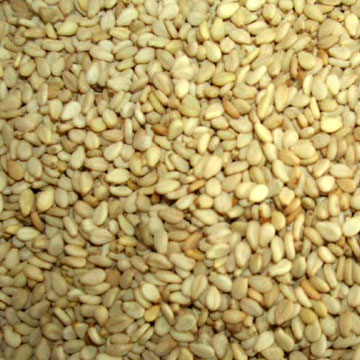The U.S. Food and Drug Administration is posting this information to ensure the widest possible dissemination to the public.
 FDA, along with the Centers for Disease Control and Prevention (CDC), and state and local partners, is investigating a multistate outbreak of Salmonella Concord illnesses linked to tahini imported from an Israeli manufacturer, Achdut Ltd., located in Ari’el, Israel.
FDA, along with the Centers for Disease Control and Prevention (CDC), and state and local partners, is investigating a multistate outbreak of Salmonella Concord illnesses linked to tahini imported from an Israeli manufacturer, Achdut Ltd., located in Ari’el, Israel.
On November 28, 2018, in response to the on-going investigation, Soom Foods voluntarily recalled the following additional products:
12 oz. Chocolate Sweet Tahini Halva Spread 071318CH. Packed from tahini lot 18-123.
And tahini in the following sizes and types:
40 lb. Organic Tahini.
40 lb. Premium Tahini.
16 oz. Premium Tahini.
16 oz. Organic Tahini.
11 oz. Premium Tahini.
The tahini product lot codes range from 18-097 through 18-141.
Some of the above listed products were included in the original voluntary recall by Achdut Ltd. on November 27, 2018. The FDA is advising consumers not to eat recalled Achva, Achdut, Soom, S&F, and Pepperwood brand tahini and Soom brand Chocolate Sweet Tahini Halva Spread (lot code 071318CH) with expiration dates ranging from April 7, 2020 to May 21, 2020 and Baron’s brand tahini with the expiration date of May 5, 2021. The product lot codes range from 18-097 to 18-141. Consumers should discard the product or return the product to the store for a refund.
 Some brands of tahini manufactured by Achdut Ltd. may lack specific dates or may have labels that are written in Hebrew. Consumers who have purchased a tahini product and are uncertain of where the product was manufactured or cannot identify the brand by lot codes or expiration dates should discard the product or return the food to the store for a refund. More product information and pictures of the recalled product labels can be found in Achdut ‘s recall announcement. View Soom Foods’ recall announcement.
Some brands of tahini manufactured by Achdut Ltd. may lack specific dates or may have labels that are written in Hebrew. Consumers who have purchased a tahini product and are uncertain of where the product was manufactured or cannot identify the brand by lot codes or expiration dates should discard the product or return the food to the store for a refund. More product information and pictures of the recalled product labels can be found in Achdut ‘s recall announcement. View Soom Foods’ recall announcement.
Retailers and restaurants should not use any of the recalled tahini manufactured by Achdut Ltd. at their establishments. Retailers and restaurants should throw the product out.
Firms that may have used the recalled tahini (either repacked or used as an ingredient in a food without a kill step) should consider recalling their products.
(One of the only U2 songs I like, because of the guitar and it was inspired by a Tom Robbins novel.)


 sesame seed mixes supplied into the Irish retail market by Independent Irish Health Foods Ltd.
sesame seed mixes supplied into the Irish retail market by Independent Irish Health Foods Ltd. The study’s authors pointed out that although there was no direct link to the contaminated seeds, 137 people in England and Wales fell ill from six sub-types of salmonella found in the seeds during the six-month study. Many more ill people are likely to have not reported their symptoms to GPs. The Health Protection Agency and the local authority group Lacors, which conducted the study, warned food manufacturers and retailers to improve hygiene during harvesting and drying of seeds.
The study’s authors pointed out that although there was no direct link to the contaminated seeds, 137 people in England and Wales fell ill from six sub-types of salmonella found in the seeds during the six-month study. Many more ill people are likely to have not reported their symptoms to GPs. The Health Protection Agency and the local authority group Lacors, which conducted the study, warned food manufacturers and retailers to improve hygiene during harvesting and drying of seeds.